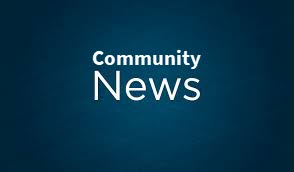Description
Montana Gov. Greg Gianforte's administration is reviving efforts to do away with a panel that hears appeals from people who were denied public assistance to afford basics such as food and health care,reports KFF Health News.
The effort, billed as a way to reduce red tape in government, would leave district court as the only option outside of the state health department for people to fight officials’ rejections of their applications for Medicaid, temporary financial assistance, food aid, and other programs.
Montana lawmakers are considering a bill requested by the state Department of Public Health and Human Services to eliminate its Board of Public Assistance. The health department backed a similar bill in 2023 as part of the Republican governor’s “Red Tape Relief” initiative, but the measure died in committee. On Feb. 4, the state Senate passed the bill, sponsored by state Sen. Jeremy Trebas, R-Great Falls, on a 45-5 vote. It must also pass scrutiny of the state House of Representatives and Gianforte before it becomes law.
The three-person board, whose members are appointed by the governor, also decides appeals of administrative rulings that someone received more aid than they qualified for and therefore owes the state money.
During a Jan. 29 committee hearing, state officials who proposed the cut said they’re trying to eliminate unnecessary bureaucracy in government. Opponents of the plan worry the change would limit people’s chance of having their voices heard in hard-to-use and often overstretched systems.
“We know we've made a difference,” said Carolyn Pease-Lopez, a Democratic former state lawmaker who said she has been on the board since 2017.
Pease-Lopez said she was unaware until contacted by KFF Health News that the health department was trying again to get rid of the board. Starting in 2023 and into last year, the state’s public assistance workforce was overstretched because of a massive effort to check who qualifies for Medicaid, the state and federal health insurance program for low-income people. People trying to tap into public assistance in Montana and elsewhere have said they face long waits for help managing their benefits. In Montana, about 2,300 public assistance appeals a year go first to the health department’s Office of Administrative Hearings. Last year, roughly 15 of those cases went on to the Board of Public Assistance, the last forum for people to argue their case before going to district court.
The board is an unnecessary intermediate step, health department officials said.
The board upheld the health department’s decisions in all but one of the roughly 15 cases that came before it last year, said Rutherford Hayes, administrator of the Office of Administrative Hearings.
The health department, he said during the Jan. 29 hearing, “ultimately has far more legal expertise than a volunteer lay board does.” One of the board's six annual meetings was canceled, he said, because there weren’t any cases to discuss.
Pease-Lopez said not every case that lands before the board is cut-and-dried, and that the panel sometimes plays the role of an intermediary. She recalled an instance in which a small medical company was on the hook to repay thousands of dollars to the state due to coding errors the health department hadn’t caught for years.
Pease-Lopez said in that case the board acted as a mediator between the company and state attorney to find a compromise.
“They wanted thousands and thousands of dollars that would have upended their business,” Pease-Lopez said. She said the board “gives the state a chance to not just have tunnel vision and be driven by the rules alone, but to kind of look at the whole picture.”
State officials have said that even though the board typically sides with the agency’s initial decision, keeping it running takes staff time. That includes preparing records for board meetings and assigning an attorney to represent the agency.
The agency has said eliminating the board would help appellants take their case to district court more quickly.
In 2023, lawmakers who opposed the plan worried it would cut the public’s access to an independent body. They also noted that appealing to the board is free, and people who are fighting to access public assistance programs may not have the money for court fees or a lawyer.
Still, no one spoke in opposition to the board’s elimination Jan. 29.
Sharon Bonogofsky, who served on the board for roughly two years starting in 2021, said she understands the argument for its elimination. She said the work sometimes felt redundant since the board usually upheld the state’s decisions.
She said with or without the board, more resources need to go toward helping people understand their benefits, avoid paperwork mistakes that might result in their owing the state money, and transition smoothly off of state assistance programs.
"Some of these people just had all they could handle keeping their lives together, and that bit of support they were receiving was a real lifeline," Bonogofsky said.
KFF Health News is a national newsroom that produces in-depth journalism about health issues and is one of the core operating programs at KFF — the independent source for health policy research, polling, and journalism.
News Source : https://www.kbzk.com/news/montana-news/officials-seek-to-dismantle-appeals-board-for-montanans-denied-public-assistance
Other Related News
02/05/2025
DREAM Adaptive Recreations roots are deep in the alpine skiing world and for years it has...
02/05/2025
She may be new to the job of city planner but with her deep family roots in the area Laur...
02/05/2025
The Whitefish Chamber of Commerce held its annual awards gala on Jan 29 at Grouse Mountai...
02/05/2025
The Whitefish speech and debate team defeated Columbia Falls to clinch the Class A State ...
02/05/2025











